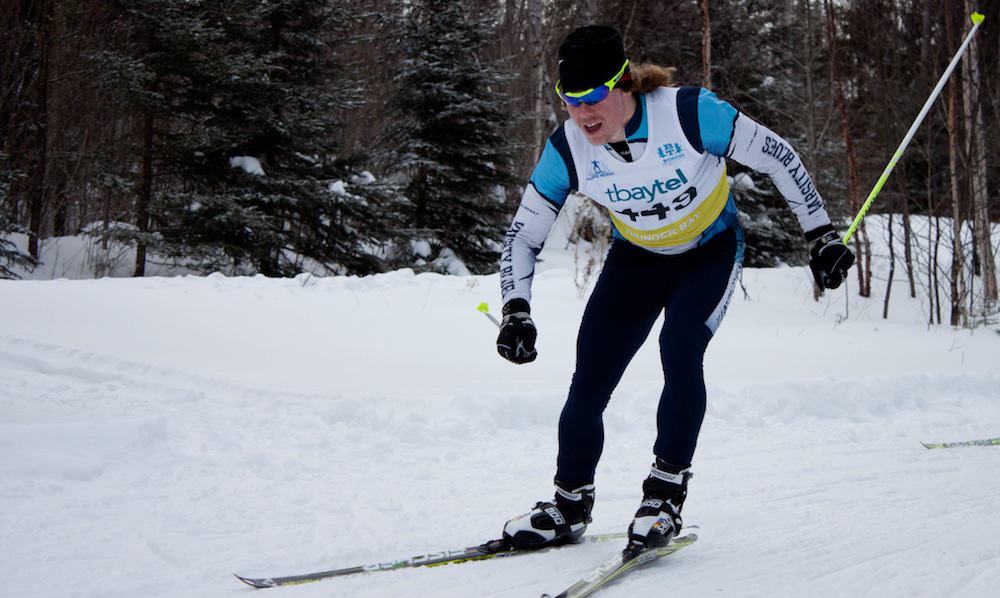The University of Toronto Nordic ski team is one of the smallest teams, counting only seven athletes. But the group has just as much and perhaps more, passion and commitment to their sport as any other team on campus.
Team members Liam Fox and Mary Qui have gone above and beyond the normal duties of athletes, and stepped into the roles of head coach and assistant coach respectively, while continuing to compete. Surprisingly, both skiiers are relatively new to Nordic skiing.
“To be honest, I didn’t really know a whole lot about Nordic Skiing when I got drawn into the sport,” said Qui.
“It sounded like it would be a fun way to stay in shape over the winter. After starting skiing, I fell in love with the sport…Beyond that, the Nordic Skiing community is very, very supportive of all athletes. It doesn’t matter what level you are competing at, everyone is simply happy to see you out on snow and enjoying yourself,” she added.
Recent highlights for the team include a third place Ontario University Athletics (OUA) finish for the men’s team two years ago, an OUA Coach of the Year award for former coach Hans Fischer, as well as recognition of a number of athletes as OUA all-stars.
“As far as this season’s level of success goes,” said Fox, “I’m very happy…This season has been what we would call a ‘rebuilding year,’ that is, we had high turnover last year due to many graduating athletes. So, we’ve recently been training a lot of rookies who are new to the sport. It means that we haven’t necessarily been putting athletes on the podium, but we’re in the process of developing them into high performance skiers who aspire to be competitive on the provincial circuit in just a few seasons… We have three official races left: Canadian Eastern Championships in Gatineau, Quebec; Ontario University Championships in North Bay, Ontario; and the Fischer Loppet in Orillia, Ontario,” he said.
The team’s season lasts for eight weeks, and with a December start there isn’t much time for the team to train on snow before their first race. To remedy this, the athletes start training in September, and make do with what Toronto has to offer.
“In the off-season, or when there is a lack of snow in the city, we focus heavily on roller-skiing, mixed in with running and weights/plyometrics in the Athletic Centre,” said Qui.
“It’s quite an accomplishment to have achieved the results we have (and still are) given our limited access to training facilities,” adds Fox. “Toronto certainly wouldn’t be the intuitive option when prospective students are considering schools to attend with strong nordic ski teams, as we have little annual snowfall and are far away from most ski resorts. However, we still make it work,” he said.
“Building on what Liam said, my experience and years with this team [have] shown me that despite our disadvantages in being a downtown team, being able to work past those difficulties has brought our team closer together, and has taught me that where there’s a will, there’s a way.
“Even if that means getting up at 5:30 am to rollerski down the Lakeshore, we do what we need to do, and we have fun doing it,” said Qui.


